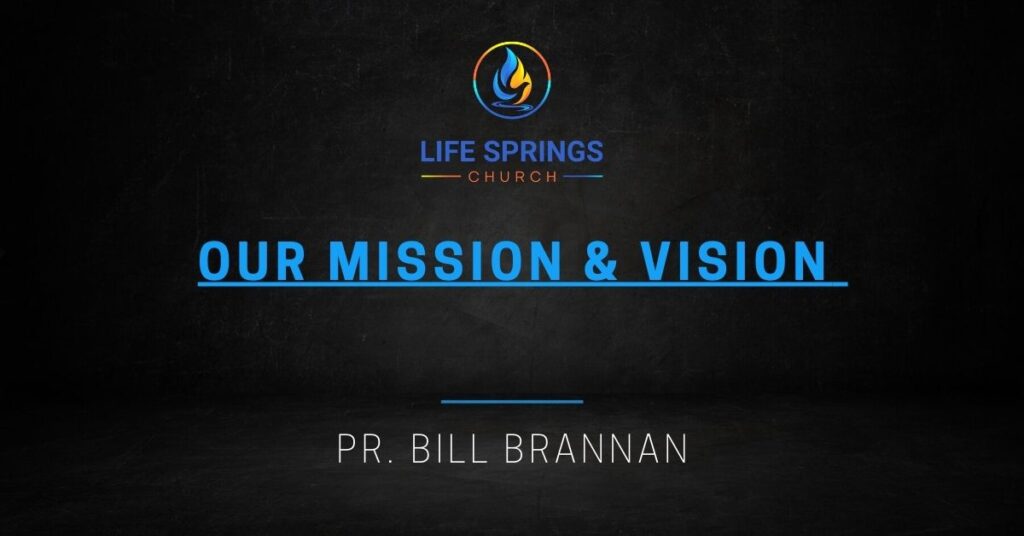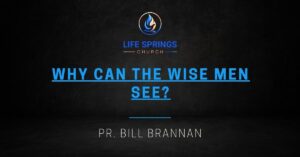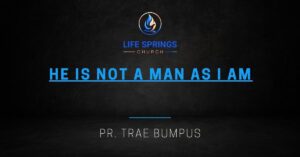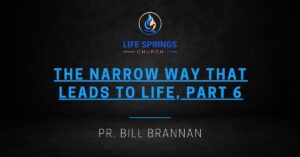The Kingdom Invasion: Restoring Human Flourishing

In ‘The Kingdom Invasion: Restoring Human Flourishing,’ Life Springs Christian Church outlines its powerful mission and vision centered on the transformative message of the Gospel of Jesus Christ. This blog delves into how kingdom values promote true human flourishing, emphasizing community restoration and spiritual renewal.
Introduction
The mission and vision of the church are foundational to its identity and purpose. These guiding principles not only shape the community’s activities but also influence how believers interact with the world around them. In a time where clarity and direction are essential, understanding the biblical roots of mission and vision becomes paramount. This exploration reveals the heart of the Gospel and its implications for every believer.
The Great Commission, Evangelism, Discipleship
The Great Commission, found in Matthew 28:18-20, serves as a cornerstone for the church’s mission. Jesus commands His followers to go forth and make disciples of all nations. This directive encompasses more than mere conversion; it involves deep, transformative relationships that lead to spiritual growth and maturity.

Photo by Nathan Anderson on Unsplash
Evangelism, as part of this mission, is not just about sharing the Gospel. It is about inviting others into a journey of discipleship. This journey fosters community and nurtures faith, allowing believers to grow together in understanding and practice. As we engage in this mission, we are not merely filling pews; we are cultivating a culture of discipleship that extends beyond the church walls.
Understanding Discipleship
- Relational Aspect: Discipleship is fundamentally relational. It is about forming connections that encourage growth and accountability.
- Teaching and Learning: It involves teaching others to obey the commands of Christ, fostering an environment where learning is continuous.
- Community Building: Discipleship creates a sense of belonging, reinforcing the idea that faith is not a solitary endeavor but a communal journey.
Multiculturalism, Diversity, Inclusion
In a world increasingly marked by multiculturalism, the church must embrace diversity and inclusion. This is not merely a social responsibility; it reflects the heart of the Gospel. Jesus’ ministry reached across cultural boundaries, inviting all to partake in the Kingdom of God.

Photo by Helena Lopes on Unsplash
Embracing diversity means recognizing the unique gifts and perspectives that individuals from different backgrounds bring to the table. It fosters an environment where everyone feels valued and included, creating a richer community experience. The church, as a representation of God’s Kingdom, should reflect this diversity, offering a glimpse of heaven on earth.
Benefits of Embracing Diversity
- Broader Perspectives: Diverse viewpoints enhance understanding and foster empathy among believers.
- Greater Innovation: Inclusion of varied backgrounds leads to creative solutions and approaches to ministry.
- Stronger Community: A diverse church can better meet the needs of its community, reflecting the love of Christ in action.
Mission and Vision of the Bible, Purpose, Faith
The mission and vision of the Bible are rooted in the overarching narrative of redemption and restoration. This divine purpose is not limited to individual salvation but extends to the transformation of societies and cultures. Understanding this broad scope is essential for believers as they navigate their faith in a complex world.

Photo by Ioann-Mark Kuznietsov on Unsplash
Faith, in this context, serves as the driving force behind the church’s mission. It compels believers to act, to serve, and to love in ways that reflect Christ’s heart. The church’s vision should align with God’s purpose, seeking to bring His Kingdom to fruition on earth.
Key Elements of Biblical Mission
- Redemption: The mission emphasizes the need for redemption for all of humanity through Christ.
- Restoration: It highlights God’s desire to restore creation to its intended glory.
- Relationship: Building relationships with God and others is central to fulfilling this mission.
Gospel of the Kingdom, Salvation, Hope
The Gospel of the Kingdom is a powerful message of salvation and hope. It proclaims that Jesus is not only the Savior but also the reigning King. This understanding shifts the focus from individualistic salvation to a communal experience of God’s Kingdom.

Photo by Tim Marshall on Unsplash
Salvation is not just an escape from hell; it is an invitation into a new way of living. It encompasses healing, wholeness, and the promise of eternal life. By embracing the Gospel of the Kingdom, believers are empowered to live out their faith actively, sharing hope with a world in desperate need.
Living Out the Gospel of the Kingdom
- Proclaiming Hope: Sharing the good news of Jesus with those around us, offering hope in times of despair.
- Demonstrating Love: Acting in love and service to others, reflecting the heart of Christ.
- Building Community: Creating spaces where people can experience the Kingdom of God together.
The Lord’s Prayer, Prayer, Spiritual Guidance
The Lord’s Prayer encapsulates the essence of prayer and spiritual guidance. It is a model for how believers should communicate with God and seek His will in their lives. This prayer not only addresses personal needs but also emphasizes the importance of community and collective purpose.

Photo by Milada Vigerova on Unsplash
Through this prayer, Jesus teaches us to align our hearts with God’s will. It serves as a reminder that prayer is not solely about asking for things; it is about seeking a relationship with the Father and understanding His desires for our lives and the world.
Components of the Lord’s Prayer
- Adoration: Recognizing and honoring God’s holiness.
- Submission: Surrendering our will to God’s will.
- Provision: Trusting God to provide our daily needs.
- Forgiveness: Acknowledging the importance of forgiveness in our relationships.
Recognizing the Kingdom, Awareness, Spirituality
Recognizing the Kingdom of God requires awareness and a deepened spirituality. It involves seeing the world through the lens of God’s Kingdom and understanding the values that govern it. This awareness enables believers to engage with their surroundings meaningfully and purposefully.

Photo by Joshua Earle on Unsplash
Spirituality, in this context, is about cultivating a relationship with God that informs our actions and attitudes. It calls us to live with intention, seeking to embody the principles of the Kingdom in every aspect of our lives.
Developing Awareness of the Kingdom
- Observation: Being attentive to the workings of God in everyday life.
- Reflection: Taking time to meditate on Scripture and God’s presence.
- Action: Responding to God’s prompting in our communities and relationships.
The Jewish Mission, Heritage, Culture
The Jewish mission emphasizes creating a society where human dignity is respected, and justice is impartially administered. This mission is not limited to spiritual matters; it encompasses labor relations, agriculture, and community welfare. The core idea is that every aspect of life should reflect God’s Kingdom, promoting human flourishing.

Photo by Swastik Arora on Unsplash
Jewish heritage and culture are steeped in these principles. They advocate for a world where no one is destitute or isolated, and where morality is integrated into every facet of life. This vision aligns closely with the teachings of Jesus, who affirmed the importance of justice and compassion in everyday interactions.
Key Aspects of the Jewish Mission
- Justice: Ensuring fair treatment for all, regardless of status.
- Community Welfare: Supporting systems that care for the vulnerable and promote social responsibility.
- Holistic Living: Integrating faith into all areas of life, from economics to personal relationships.
The Cross and the Gospel of the Kingdom, Redemption, Sacrifice
At the heart of the Gospel is the Cross, which symbolizes redemption and sacrifice. It is not merely a historical event but a transformative act that invites believers into a new life. The Cross is the ultimate expression of God’s love and serves as a bridge between humanity and the divine.

Photo by Diana Vargas on Unsplash
This message of the Cross is essential for understanding the Gospel of the Kingdom. It reveals that true redemption requires acknowledging the sin that separates humanity from God. Through Christ’s sacrifice, believers are offered a path to reconciliation and a chance to flourish in their spiritual lives.
The Significance of the Cross
- Reconciliation: The Cross reconciles humanity to God, restoring broken relationships.
- Transformation: It empowers believers to live transformed lives, reflecting Christ’s character.
- Hope: The Cross offers hope for a future where sin and death are defeated.
Vision, Goals, Future
Our vision is clear: to restore human flourishing through the Gospel of Jesus Christ. This vision propels us toward future goals that align with God’s purpose. We aim to create a community that embodies love, grace, and service, impacting our neighborhoods and beyond.

Photo by Priscilla Du Preez 🇨🇦 on Unsplash
As we look ahead, our goals include expanding outreach programs, fostering deeper connections within the congregation, and promoting spiritual growth among members. By focusing on these objectives, we can fulfill our mission of restoring the world through the transformative power of the Gospel.
Future Goals
- Community Engagement: Increase participation in local service projects.
- Spiritual Development: Implement programs that encourage personal and communal growth.
- Outreach Initiatives: Expand efforts to share the Gospel with those outside the church.
Mission, Purpose, Community
Our mission is centered on becoming a community that restores the world by reproducing the life of Christ. This mission is not just about gathering; it’s about actively engaging with the world around us. Every member plays a vital role in this mission, contributing unique gifts and perspectives.

Photo by Annie Spratt on Unsplash
Understanding our purpose within this community allows us to serve effectively. We are called to demonstrate love, grace, and mercy, reflecting the heart of Christ in our actions. A thriving community is one where every individual feels valued and empowered to make a difference.
Building a Purposeful Community
- Active Participation: Encourage members to get involved in various ministries.
- Supportive Environment: Create a culture where everyone feels safe to express their faith.
- Collective Growth: Foster an atmosphere that promotes shared learning and spiritual maturity.
Becoming Like Jesus, Spiritual Growth, Discipleship
Becoming like Jesus is the ultimate goal of every believer. This journey of spiritual growth is marked by discipleship, where individuals learn to embody Christ’s teachings and love. Discipleship is a process that requires commitment, accountability, and community support.

Photo by Priscilla Du Preez 🇨🇦 on Unsplash
As we grow in our faith, we become more equipped to serve others. This growth is not just personal; it impacts the entire community. By encouraging one another and fostering a culture of discipleship, we can effectively share the love of Christ with those around us.
Steps to Spiritual Growth
- Engagement with Scripture: Regularly reading and studying the Bible to know God’s will.
- Prayer: Developing a consistent prayer life to deepen our relationship with God.
- Community Involvement: Actively participating in church activities to grow alongside fellow believers.
Our Mission and Vision, Church Goals, Community Impact
Our mission and vision are intertwined, driving us toward impactful goals. We aim to create a church that not only meets the needs of its members but also serves the broader community. By focusing on human flourishing, we can make a significant difference in the lives of those around us.

Photo by Dylan Gillis on Unsplash
The impact of our church can be measured by the lives transformed through the Gospel. As we engage in outreach and service, we demonstrate the love of Christ in tangible ways. This commitment to community impact reflects our understanding of the church as a living body, actively participating in God’s work.
Strategies for Community Impact
- Outreach Programs: Develop initiatives that address local needs and provide support.
- Partnerships: Collaborate with other organizations to maximize our reach and resources.
- Awareness Campaigns: Educate the congregation and community about pressing social issues.
What’s Your Church About, Church Identity, Values
Understanding what our church is about is crucial for both members and newcomers. Our identity is rooted in the mission to restore human flourishing through the Gospel. This identity shapes our values and informs our actions as a community.

Photo by Edwin Andrade on Unsplash
By clearly articulating our values, we create a welcoming environment that invites others to join us on this journey. Our church is a place where love, grace, and service are paramount, providing a foundation for everything we do. This clarity of purpose helps us to remain focused on our mission and vision.
Core Values of Our Church
- Love: Prioritizing love in all interactions, reflecting Christ’s heart.
- Service: Committing to serve others selflessly, following Jesus’ example.
- Community: Fostering a sense of belonging and support among members.
Our Mission & Vision
(Preaching Outline)
1) Biblical Mission and Vision
a) We recently adopted a new mission and vision statement at LSCC.
b) As a church, what is the mission and vision? This is challenging. I sometimes point out that it is fleshed out by all of scripture.
c) What should we focus on?
d) It seems reasonable to start with: Matthew 28:18–20 (NASB) — 18 And Jesus came up and spoke to them, saying, “All authority has been given to Me in heaven and on earth. 19 “Go therefore and make disciples of all the nations, baptizing them in the name of the Father and the Son and the Holy Spirit, 20 teaching them to observe all that I commanded you; and lo, I am with you always, even to the end of the age.”
e) We could also focus in on Jesus: Matthew 4:23 (NKJV) — 23 And Jesus went about all Galilee, teaching in their synagogues, preaching the gospel of the kingdom, and healing all kinds of sickness and all kinds of disease among the people.
i) Paul would then be a disciple: Acts 28:30–31 (NKJV) — 30 Then Paul dwelt two whole years in his own rented house, and received all who came to him, 31 preaching the kingdom of God and teaching the things which concern the Lord Jesus Christ with all confidence, no one forbidding him.
ii) The Lord’s prayer is meant to be the driving passion of disciples: Matthew 6:9–13 (NKJV) — 9 In this manner, therefore, pray: Our Father in heaven, Hallowed be Your name. 10 Your kingdom come. Your will be done On earth as it is in heaven. 11 Give us this day our daily bread. 12 And forgive us our debts, As we forgive our debtors. 13 And do not lead us into temptation, But deliver us from the evil one. For Yours is the kingdom and the power and the glory forever. Amen.
2) The invasion of Christ’s kingdom or the escape of believers?
a) Much of Torah is about things not conventionally seen as religious at all: labour relations, agriculture, welfare provisions, loans and debts, land ownership, and so on. It is not difficult to have an intense religious experience in the desert, or in a monastic retreat, or in an ashram. Most religions have holy places and holy people who live far removed from the stresses and strains of everyday life… But that is not the Jewish project, the Jewish mission. God wanted the Israelites to create a model society where human beings were not treated as slaves, where rulers were not worshipped as demigods, where human dignity was respected, where law was impartially administered to rich and poor alike, where no one was destitute, no one was abandoned to isolation, no one was above the law, and no realm of life was a morality-free zone. That requires a society, and a society needs a land. It requires an economy, an army, fields and flocks, labour and enterprise. All these, in Judaism, become ways of bringing the Shekhina into the shared spaces of our collective life.[1]
b) 1 Corinthians 1:18 (NKJV) — 18 For the message of the cross is foolishness to those who are perishing, but to us who are being saved it is the power of God.
i) Jews seek a sign and Greeks wisdom.
3) LSCC Mission & Vision
a) Where we landed was on a mission and vision that gets to the heart of what we believe God is doing right now.
b) Vision: To restore human flourishing through the gospel of Jesus Christ.
c) Mission: Becoming a community that restores the world by reproducing the life of Christ with imperfect people growing in grace and serving through the gift of the Spirit.
d) Ephesians 4:15–16 (NASB) — 15 but speaking the truth in love, we are to grow up in all aspects into Him, who is the head, even Christ, 16 from whom the whole body, being fitted and held together by that which every joint supplies, according to the proper working of each individual part, causes the growth of the body for the building up of itself in love.
4) What can you do to fulfill the mission and vision of LSCC?
a) Nurture the Spirit and culture.
b) Worship
c) Pray
d) Engage
i) Maybe join the outreach committee.
ii) Build Friendships
iii) Reach out – the net.
e) Own and live the vision and mission of the church.
[1] Sacks, Jonathan. Numbers: The Wilderness Years (Covenant & Conversation Book 4) . The Toby Press. Kindle Edition.







